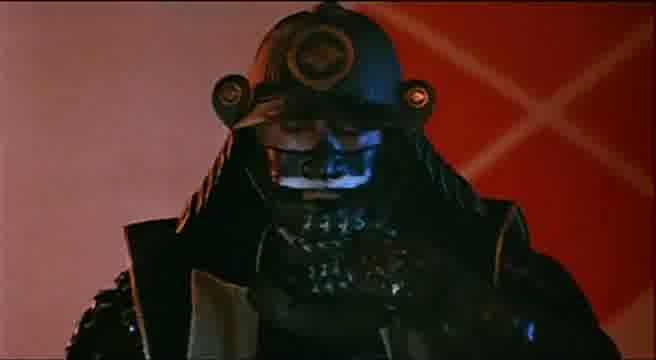Reżyseria:
黒澤明Muzyka:
池辺晋一郎Obsada:
Tatsuya Nakadai, Tsutomu Yamazaki, Kenichi Hagiwara, Kaori Momoi, Takashi Shimura, Kamatari Fujiwara, 倍賞美津子, Daisuke Ryu, Hideo Murota, 大滝秀治, Jinpachi Nezu (więcej)VOD (1)
Opisy(1)
XVI-wieczna Japonia. Shingen, przywódca klanu Takeda, mający opinię niezwyciężonego, podczas oblężenia zamku Noda zostaje śmiertelnie ranny. Wiedząc, że jego syn Katsuyori nie posiada takiego jak on autorytetu i może doprowadzić do upadku rodu, umierający Shingen nakazuje utrzymać fakt swojej śmierci w tajemnicy. Jego miejsce ma zająć w tym czasie sobowtór. Wybór pada na Kagemushę. Mistyfikacja zostaje przeprowadzona z powodzeniem. Jednak wkrótce szpiedzy zaczynają coś podejrzewać. (Loomi)
(więcej)Recenzje (2)
Probably the most expensive film by Akira Kurosawa, thanks to some American financial injection, which allowed Kurosawa to depict magnificent war scenes and create a grand epic drama from the 16th century of Japanese history, when, similarly to Europe, the old age of noble clans and their fighting methods based on medieval tactics was slowly coming to an end. Kurosawa tried, as in his other films, to create a strong Shakespearean psychological drama, where an insignificant person is thrown by circumstances into the whirl of power intrigues and brutal battles. A little thief is supposed to play the role of a powerful feudal lord, the leader of the clan, who strives for a dominant position in Japan. But this is not a funny comedy like the Czech film The Emperor's Baker - The Baker's Emperor, but a fateful dark matter, where we witness in live transmission not only the destruction of one clan with its whole army but also the end of an era. Another significant turning point in Japan came in the 19th century with the Meiji reform movement. If there is something valuable here, it is, of course, the set design and the confrontation of different cultures, because late medieval Japan represents exoticism for a Central European. One could point out a certain theatricality - Takeda's double wears so much makeup to depict his despair, more than what is used up in an average theater performance. In addition, emotions are presented, as is customary in Kurosawa's historical dramas, in an immoderate amount; it is simply different from the more sober European approach. If this was filmed in the Euro-American area, I would be more critical and would recommend the director to do more editing and have more civilian acting, but I willingly forgive Kurosawa for his cinematic vision. Overall impression: 80%.
()
By this time, Akira Kurosawa already knew very well what to do when he wanted to create a powerful scene. And I thought it was precisely from Kurosawa's visual storytelling that Scorsese drew inspiration for the film Silence. Kagemusha is a magnificent film, yet focused on characters, although the battle scenes can truly awe.
()

